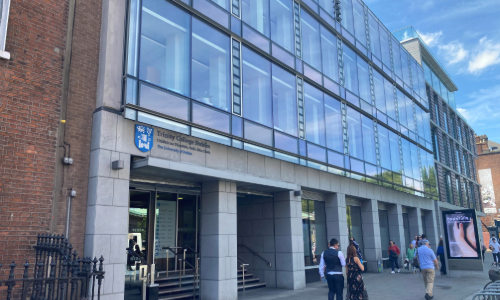The Department of Clinical Speech and Language Studies is the longest established centre for the professional education of Speech and Language Therapists in Ireland. If you are interested in any of our courses, please explore our website and we would welcome any queries.
Contact Us
School of Linguistic
Speech & Communication Sciences
Arts Building
Trinity College Dublin
Dublin 2
Ireland
Speech & Communication Sciences
Arts Building
Trinity College Dublin
Dublin 2
Ireland
View the contact page for more contact and location information
Email slscs@tcd.ie Gaeilge
/prod01/channel_3/media/tcd/slscs/images/clinical-speech-images/front-page-clinical-speech/Old-Lady-Water3-1150by450.png)



